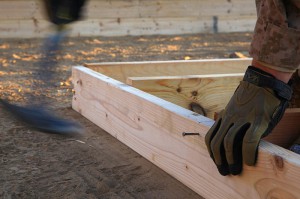Today’s post is the second in a series by guest blogger Bob Sessions:
The first stage of the spiritual life is liberation from obsessive attachments. –Niketas Stethatos*
The Kingdom of Heaven means dispassion of the soul. –Evagios of Pontus*
Never let anger or irritability get a grip on you, for as scripture says: “The angry man becomes a fool,” (Prov. 11:25) whereas wisdom makes its abode in the heart of the gentle. –Theodoros the Ascetic*
(*From the wonderful collection The Book of Mystical Chapters: Meditations on the Soul’s Ascent, from the Desert Fathers and Other Early Christian Contemplatives)
It’s probably impossible to grow up in any society and not have obsessive attachments or problematic passions, but there is little doubt that we are very good, in our consumer culture, at making sure most everyone has a cart load of both. We also seem to specialize in cloaking these subterranean sources of our actions and miseries in ways that make them especially difficult to identify and extirpate.
Few people have the time, ability, or help to sort through the emotions and attachments that can so easily rule our lives, be they eating disorders, uncontrollable anger, resentment and desire for revenge, the need for instant and constant recognition, or desire for ever-more stuff. The Desert Fathers and Mothers (the third-century ascetics who fled to the Egyptian desert to draw nearer to God) were adamant in saying that without identifying, understanding, and finally ridding ourselves of these psychological demons, we have no chance of advancing on the spiritual path.
In my retirement, I’m finding that one way to do some of the sorting and amelioration of my untoward passions and attachments is through manual labor. I find great pleasure and meaning in handyman work done at home and church and in working for others. Part of what seems to drive my desire to repair, replace, and spruce up the rooms and contents of my life is the concreteness of the work. I loved teaching and I think was pretty good at it for much of my 45-year career; but oh, it was difficult to know how I was doing at such an abstract activity as teaching philosophy. With handyman work, you either do the job right or you don’t, and it’s not difficult to tell which it is.
Perhaps part of my motivation is that fixing things is simpler than teaching someone to think, but as Matthew Crawford (author of Shop Class as Soulcraft: An Inquiry into the Value of Work) contends, manual labor often requires problem-solving that can rival serious intellectual challenges. I also think the Benedictines are correct that working in and for one’s community is crucial to good work, and much of my joy in the manual labor I have been doing comes from helping others and enhancing relationships.

I am also finding that in the process of painting trim, installing floors, fixing toilets or replacing doors I have become much more clear about my emotional landscape and I have been “beautifying” it in the process.
Take anger, for example. So much anger is a result of frustration with a lack of control. Working with my hands has shown me the futility of getting angry in response to a bent nail, leaking pipe, or spilled paint. Getting angry in response to such eventualities is a kind of magical thinking—if I just curse the nail it will go in straight. Au contraire, I’ve learned that anger prevents clear thinking. And unlike anger with people, which sometimes can be at least momentarily seem to work, the pipe just keeps dripping.
Manual labor has helped me become more patient and less attached to a wide variety of things—from material objects and routines to thought processes and prejudices. If you’ve done manual labor you realize that there is always another way to proceed and another perspective for evaluating a problem or project.
Perhaps most importantly for my spiritual growth, through my handyman projects I have come to appreciate the material world, including my own body, more than ever. I find myself in awe on a regular basis: at the intelligence of my body that can learn and remember so many intricate maneuvers, at human ingenuity in creating such amazing tools, materials and processes, at the laws of physics that give us such an orderly and predictable world, and perhaps most at how blessed we humans are in being able to know and appreciate the beauty within and around us.











